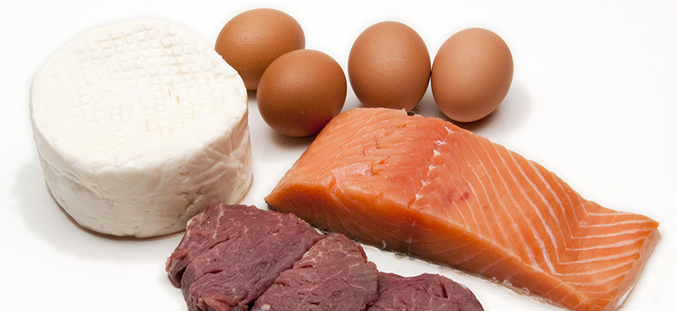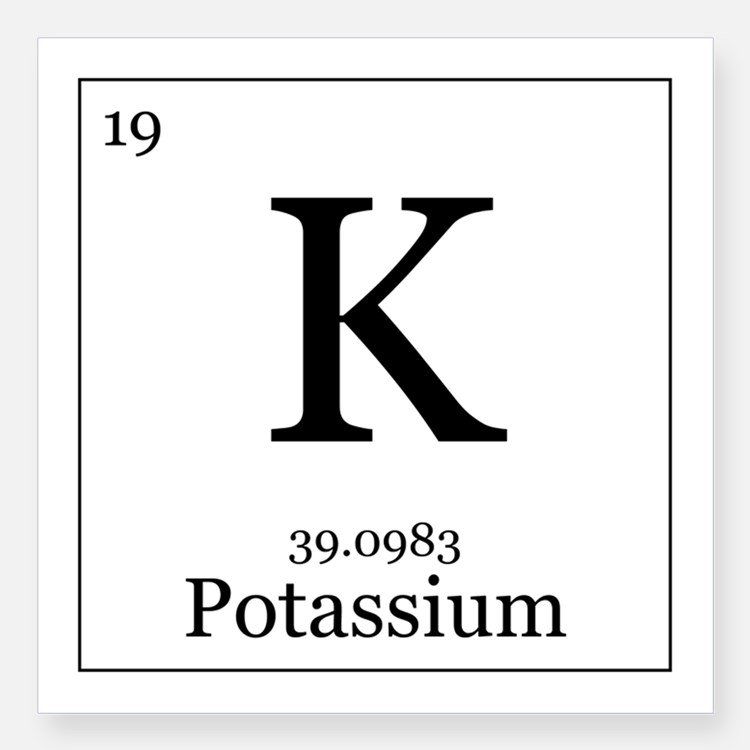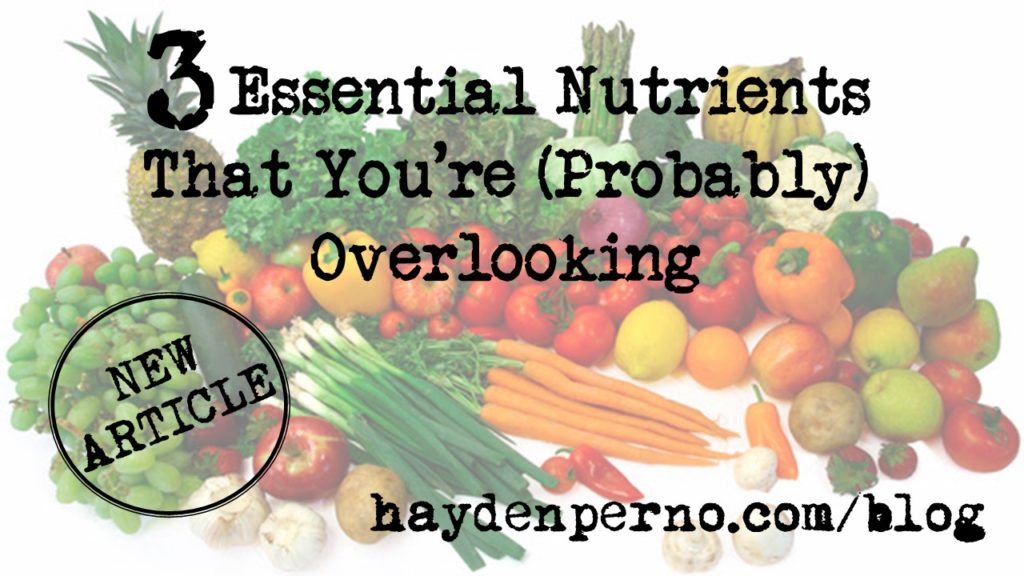One of the subjects that I’m studying this semester is titled Nutrients and Metabolism. Which means, yep, I’ve been learning a little bit more about nutrients and metabolism (shocking, I know).
While some of the stuff is a little obvious (like drinking water and eating vegetables for optimal health), some of it is quite interesting. Most notably, the information regarding adequate intakes for various nutrients.

This is more often than not something people don’t tend to think about. Especially when they stick to a similar diet structure for an extended period of time.
While obtaining structure with your eating patterns is indeed important for consistency and generally advised, it can often lead to overlooking certain requirements.
Which is also something groups like vegans, the elderly, pregnant women, and exercising individuals should pay attention to, too.
For starters, if you don’t get enough of the right nutrients, it can lead to scenarios like hormonal changes (which can lead to worsened ability to build muscle and even lose fat), muscle loss, health issues, and even superficial physique changes such as skin issues (like dry skin, eczema, psoriasis, etc.).
What makes this all worse is that there is an abundance of information out there that can impact upon food choices.

For instance, there are the people that tell you to limit fats, others that tell you to limit carbohydrates, and others that even scare you into the idea that eating too much protein will lead to kidney damage (it won’t).
Which is making things worse, no doubt. But, instead of getting into this highly popularised debate, I thought that it would be helpful to instead focus on the smaller nutrients. More specifically, ones that people tend to look towards supplements instead of eating real foods.
So, without further ado, here are three important nutrients that you should certainly ensure you consume enough of.
Number 3: Vitamin B12

Background
B vitamins are water-soluble vitamins. Meaning, they are highly susceptible to heat and storage damage. They occur in food in what is known as coenzyme form. To provide benefit to our bodies, they must combine with inactive enzymes inside the body.
B12 is important in red blood cell and DNA synthesis, optimal brain and nerve functioning, and is also necessary to carry out many other functions such as fat and amino acid metabolism.

B12 is an important nutrient to consume as it is one that we cannot naturally produce. Therefore, it must be consumed if we want to obtain the benefits alongside an optimally functioning body.
Deficiency
Not getting enough B12 can lead to pernicious anaemia. This is when there is not enough red blood cells circulating in your body. Some common signs of this condition are tingling sensations, weakness, tongue soreness, and fatigue. Other deficiency conditions consist of digestion issues and neurological complications.
Some examples of neurological issues that can arise are shortness of breath, fatigue, confusion, dementia, and even decreased reflexes. These are mostly attributed to the lack of red blood cells (i.e. pernicious anaemia).
Requirements (Australian-specific)
Fortunately for us, to keep these issues at bay, B12 is only required in small amounts.
For children (aged 1-18) it is recommended that they intake between 0.9 µg and 2.4 µg per day. For adults, it is recommended that they intake 2.4 µg per day. For pregnant and lactating individuals, it is recommended that they intake slightly higher: 2.6 µg and 2.8 µg, respectively.
Where to get it
B12 can be obtained from red meats, eggs, and dairy. For vegans, it can be consumed through fortified products like soy milk, yeast spread, meat analogues, and B12 supplements.

Number 2: Potassium (K+)

Background
Potassium is an incredibly important mineral for many functions of the body. Most notably, it is essential for maintaining your fluid and electrolyte balance, keeping your nerves functioning at high capacity, assists in muscle contraction, and even plays a role in keeping your blood pressure under control.
Unlike vitamins, minerals like potassium typically possess an upper limit. Meaning, if you consume too much of them, you will experience toxicity effects.
Deficiency
While it is somewhat rare for an individual to not obtain enough of this nutrient, issues that can arise consist of the following:
Muscle weakness, cramps, decreased appetite, irregular heartbeat, confusion, and even paralysis.

Toxicity
While there is no upper limit for this particular mineral for healthy people, getting too much K+ can lead to muscle weakness, vomiting, kidney failure, and even cardiac arrest.
Requirements (Australian-specific)
To counter the above, it is highly recommended that individual’s intake at the very minimum 2000 mg per day. Children (ages 1-18) should be looking at consuming between 2000 and 2600 mg per day. While men should aim for 3800 mg and women 2800 mg each day.
Where to get it
Lucky for all of us, this nutrient can be obtained quite easily provided you intake regular food.
Meats, fruits, vegetables, legumes, and grains are just some of the foods that contain this important and essential mineral.

Number 1: Vitamin D

Last on the list, one of everybody’s favourite: vitamin D.
Background
While we all do tend to love our time in the sun in Australia, most of our lifestyles are pushing us to being inside more and more –especially with winter just around the corner.

Vitamin D is a fat-soluble vitamin. Meaning, it is absorbed in the body alongside dietary fats. It also means that it can be stored in our fatty tissue.
What is cool about this nutrient is that it can be both classified as a hormone and a nutrient. This is because our body can actually synthesise it, provided we obtain the right amount of it from that big bright thing in the sky (the sun).

Some of its functions include regulating calcium concentration in our bodies, bone health and protection, and keeping our immune system functioning at its best.
Deficiency
On the most extreme spectrum, not getting enough of this vitamin can lead to rickets, kidney disease, and osteomalacia (the term for soft bones).

Requirements (Australian-specific)
While recommended doses differ individual to individual, it is generally advised that people under the age of 70 should get at least 600 IU (international units) per day. People at risk of vitamin D deficiency, should look at getting between 1000 and 2000 IU per day. While severely deficient individuals should look at obtaining 3000-5000 IU per day.
Where to get it
Primarily, it is advised that you simply get enough sun so that your body can manufacture it itself. If taking this route, it is recommended that in the winter months, to get their requirements (as noted above), pale people should look at getting between 7 and 30 minutes of sun, and darker people should get between 20 and 180 minutes. In the summer, it is recommended that pale individuals get around 5-10 minutes, and darker individuals getting between 15 and 60 minutes.

Of course these are just general guidelines, and entirely dependent upon location in Australia (/the world) and skin type specifics. So please don’t use this as a completely necessary guideline. Talk to your doctor if you’re confused.
Other sources of this vitamin consist of fatty fish (salmon, trout, sardines), cod liver oil, and fortified margarine.

Round up
Well, that’s it. I hope you learned a thing or two. Of course this is an incredibly brief outline for some essential nutrients, but I believe that it, at the very least, will make a few people rethink their dietary habits.
If interested in any of the information, by all means research more.
Also, please be advised that the above are just recommendations and in no way should combat what you are told by your own doctor.



